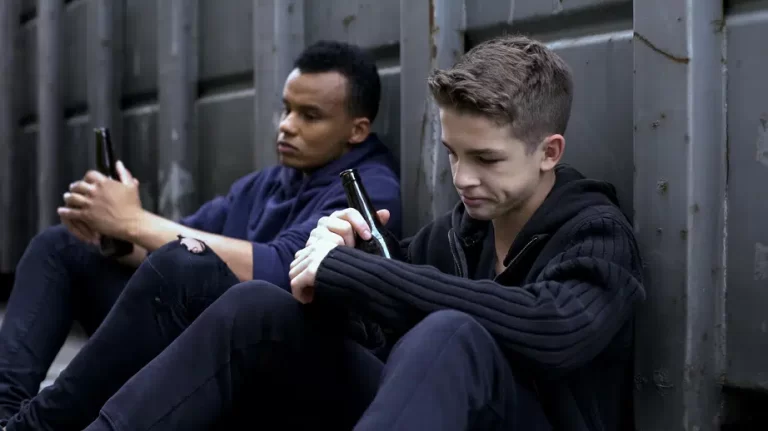According to the National Center of Drug Abuse Statistics, 50% of teenagers have misused a drug at least once, while 62% of them have abused alcohol, all before their 18th birthday. Alcohol and drugs are prevalent issues among teens who often feel burdened by peer pressure, mood changes or mental health issues to begin using in the first place.
If you suspect that your teenager is using drugs or alcohol, a teen intervention may be the best first step to get them the help they need to recover sooner.
What is a teen intervention?
By definition, an intervention is the process of becoming directly involved in a specific issue. A teen intervention involving help for drugs or alcohol is no different.
Simply put, a teen intervention is when a trusted group of people come together for one cause: to help a teenager struggling with addiction get the help they need now.
With over 96,000 people dying from overdoses each year, their lives depend on early intervention and comprehensive addiction treatment. Interventions save lives, especially in teens.
What are the most common substances abused by teens?
Although there are various reasons to consider an intervention, drug and alcohol abuse are the most common motivators to sit down with your teen for a serious one-on-one discussion.
Alcohol is, by far, the most common substance abused by teenagers, but other illegal drugs are becoming more prominent in teen usage, including:
- Marijuana
- Prescription painkillers
- Opioids
- Cocaine
- Methamphetamines
Don’t let your teen become another statistic in the fight against drug and alcohol abuse.
What are the signs that my teen may need an intervention?
Although drugs and alcohol can have different effects on everyone, there are some tell-tale signs that your teen is struggling and needs an intervention.
Some of the most common signs include:
- Rapid and frequent changes in their mood
- Changes in their sleep cycle, including sleeping more or less than normal
- Appetite and weight changes, including rapid weight loss or gain
- Frequent crying
- Heightening anxiety
- Paranoia
- Confusion
- Irrational thoughts
- Memory loss
- A significant change in their motivation and care for things that generally excite them, including work, school, friends and family time
- Isolation from others
- Self-harm
- Continual complaints of physical ailments
- Self-destructive behaviors
If you notice any of these signs in your teen, it may indicate that they are struggling with alcohol or drugs. Of course, other factors may be at play, so it’s vital that you create space for an open conversation with them immediately to get to the bottom of what’s bothering them and find them professional help to work through their struggles.
What to expect from an intervention
A teen intervention is an opportunity to support your child through a difficult time. For most parents, navigating an intervention can feel scary and difficult. If you handle it in a way that fosters communication, facilitates growth and prioritizes healing, your teen will be more open to listening to your thoughts and receiving the professional help they need to heal.
An intervention can look different for everyone. It should be centered around creating a space that is open, honest, and nonconfrontational for your teen. Ideally, it should be held when your teen is sober, as drugs and alcohol can significantly hinder the process.
It is essential that you carefully plan out all the steps of your teen’s intervention to ensure the most success.
Who should be involved?
Only include those who want the best for your teen. The room should be filled with those open to having difficult but honest open-ended conversations about alcohol and drug abuse. Do not include those that may be overly confrontational or judgmental, as it will make your teen feel attacked and shut off. Parents should be involved along with close family members, friends and trusted people in your child’s life.
Where should I hold it?
Ideally, your teen’s intervention should be held at your home or in an alternative setting that they find comfortable, open and welcoming. Although they may feel overwhelmed at first, having the right people and location is key to starting the conversation in a healthy manner.
What is the goal of an intervention?
The ultimate goal of a teen intervention is to communicate effectively with your teen, get to the root of their problem, and openly support them in finding and getting the help they need to heal them from their addiction.
Addiction treatment close to home
If you’ve recently had a teen intervention or are hoping to have one soon, we are here to help. Whether your teen is struggling with alcohol or substance use disorders, Miramar Recovery offers a wide array of options to help them get sober and reach their long-term recovery. Don’t delay treatment; get them the right therapy they need now.


